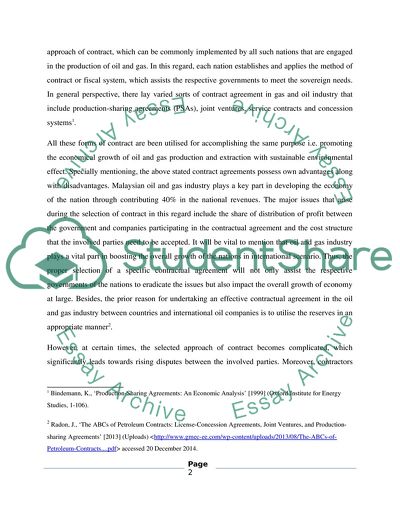Cite this document
(“The Legal Policy In The Gas And Oil Industry Essay”, n.d.)
The Legal Policy In The Gas And Oil Industry Essay. Retrieved from https://studentshare.org/law/1672683-legal-issues-in-oil-and-gas-1-choosing-between-production-sharing-contracts-joint-ventures-and-service-contracts-presents-formidable-intellectual-challenges-as-to-optimal-commercial-and-legal-drafting-considerations-critically-discuss
The Legal Policy In The Gas And Oil Industry Essay. Retrieved from https://studentshare.org/law/1672683-legal-issues-in-oil-and-gas-1-choosing-between-production-sharing-contracts-joint-ventures-and-service-contracts-presents-formidable-intellectual-challenges-as-to-optimal-commercial-and-legal-drafting-considerations-critically-discuss
(The Legal Policy In The Gas And Oil Industry Essay)
The Legal Policy In The Gas And Oil Industry Essay. https://studentshare.org/law/1672683-legal-issues-in-oil-and-gas-1-choosing-between-production-sharing-contracts-joint-ventures-and-service-contracts-presents-formidable-intellectual-challenges-as-to-optimal-commercial-and-legal-drafting-considerations-critically-discuss.
The Legal Policy In The Gas And Oil Industry Essay. https://studentshare.org/law/1672683-legal-issues-in-oil-and-gas-1-choosing-between-production-sharing-contracts-joint-ventures-and-service-contracts-presents-formidable-intellectual-challenges-as-to-optimal-commercial-and-legal-drafting-considerations-critically-discuss.
“The Legal Policy In The Gas And Oil Industry Essay”, n.d. https://studentshare.org/law/1672683-legal-issues-in-oil-and-gas-1-choosing-between-production-sharing-contracts-joint-ventures-and-service-contracts-presents-formidable-intellectual-challenges-as-to-optimal-commercial-and-legal-drafting-considerations-critically-discuss.


